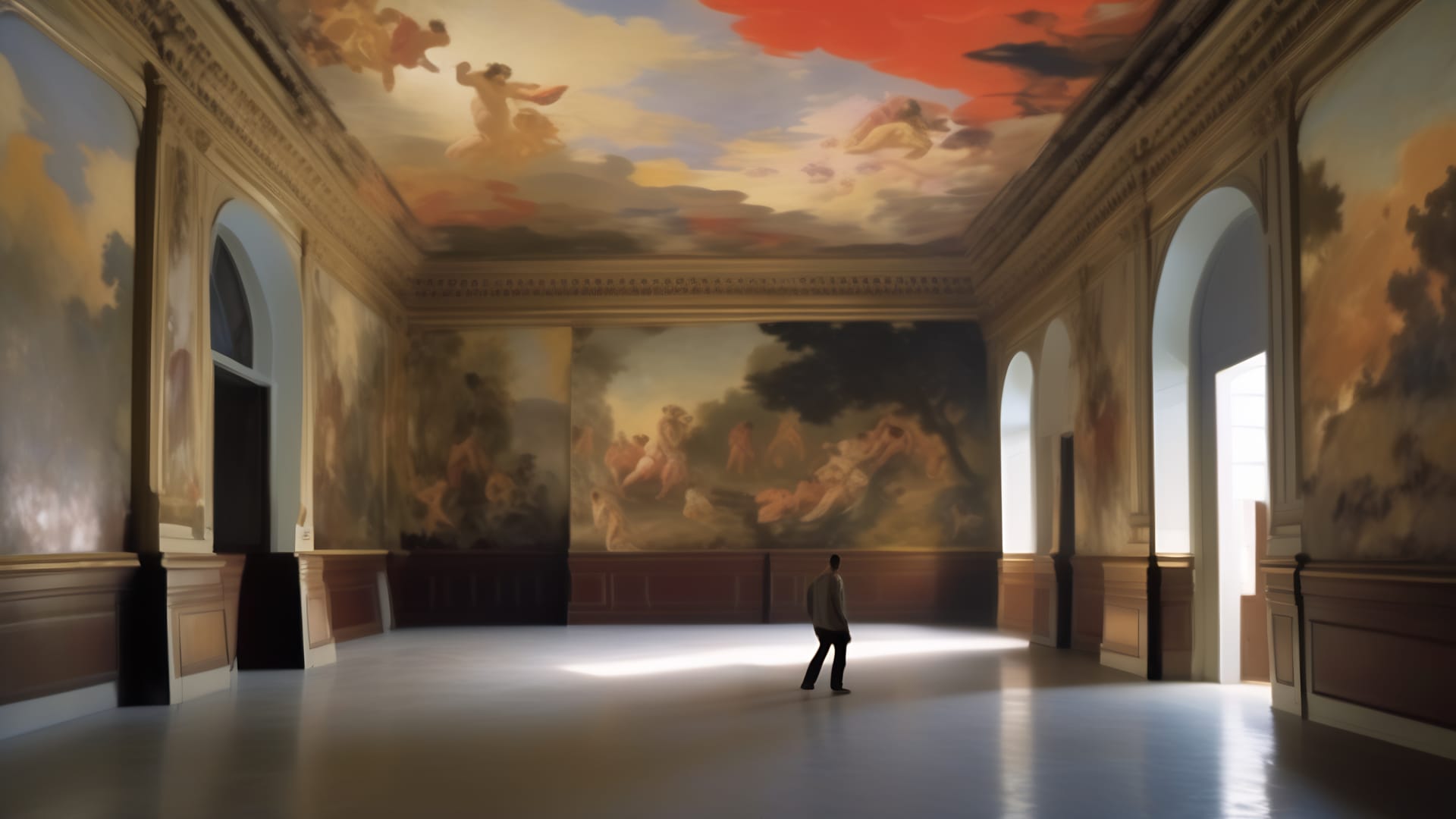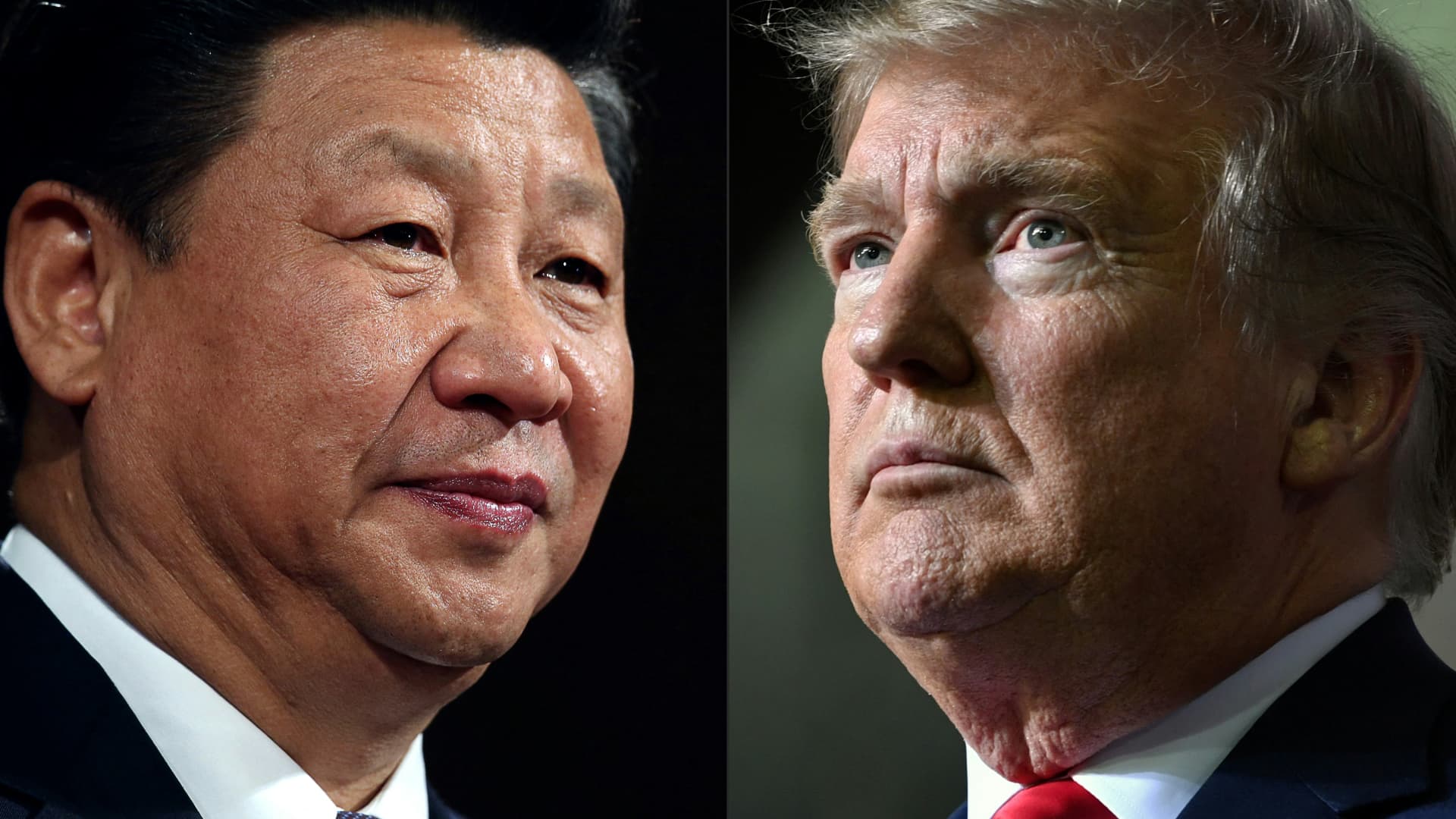“The Threshold of Reverie,” a work produced by Botto.
Botto
Generative artificial intelligence is making huge waves across industries and services from finance to human resources and spending on the technology is growing fast.
And the art world is no different — some artists are using it to help generate work, and others are shocked by its capabilities.
Now, a new AI “artist” is making a splash, bringing up central questions around the nature of art, its creation and ownership.
Botto, described as a “decentralized autonomous artist” on its website, has produced around 150 images, or “works,” which together have fetched more than $5 million via auctions since 2021. Botto’s work is influenced by a group of people who vote on the image that will be auctioned each week, and in turn help to determine what it creates next.
“If there’s, kind of, a purpose of Botto, it’s first to become recognized as an artist, and I think second is to become a successful artist,” said Simon Hudson, Botto’s operator and co-lead, in a video call with CNBC.
“A successful artist, you can look at from a lot of different lenses: commercially successful, financially successful, culturally successful, spiritually successful — if it’s really having that kind of deep impact on people,” he said.
How Botto works
Botto was designed by software collective ElevenYellow and German artist and computer programmer Mario Klingemann to produce images based on prompts generated by an algorithm.
It was initially given a general idea of what a prompt is “without any specific directions on aesthetics, and it started by combining random words, phrases and symbols … to produce images,” Hudson told CNBC by email. Symbols such as plus and minus were used to add or reduce emphasis, he said.
“Expose Stream,” an image generated by an AI known as Botto. It was sold by Sotheby’s New York for $144,000 in October 2024.
Botto
Each week, Botto generates around 70,000 images and presents 350 of them to a group of about 5,000 people known as the BottoDAO, or decentralized autonomous organization. The BottoDAO votes on which single image will be put up for sale via the SuperRare nonfungible token auction platform.
Anyone can vote on the pieces Botto produces for free, Hudson said. But to “fully participate in the economy,” people in the DAO buy Botto tokens and in return receive points to spend, or vote, on Botto’s output, Hudson said. “There’s no passive income. You have to participate and help train Botto,” Hudson said.
Half of the auction’s proceeds go to the voters in the BottoDAO and the other half to Botto’s “treasury,” which pays for operating costs such as servers. One Botto token equates to one voting point, and returns are pro-rated — and are allocated regardless of which image an individual voted on.
Botto then uses the voting data to help it decide what to produce next, and the process continues.
‘Machine artists’
Klingemann believes that, in the near future, because of advances in AI and machine learning, “‘machine artists’ will be able to create more interesting work than humans,” according to a post on his website. One of Klingemann’s pieces became the first AI-produced work to be sold by Sotheby’s in Europe, with a 2019 auction fetching £40,000.
Images produced by Botto exhibited for sale at Sotheby’s New York in October 2024.
Botto | Sotheby’s
The value of Botto’s images appears to be increasing, Hudson said.
Two early images put up for auction during a quiet period for the AI art market were given reserve prices of around $13,000 to $15,000 by the BottoDAO, but they didn’t sell. However, at an October auction at Sotheby’s New York, the same images — “Expose Stream” and “Exorbitant Stage” — sold for $276,000 in total, Hudson said. Botto is also the third-highest seller by total sales on the SuperRare platform for the last year, as of Dec. 12.
Questions of authorship
Is Botto an artist in its own right? “It’s a thing of perception,” Hudson said. “Certainly, Botto right now is a collaboration between machine and crowd. The human hands are certainly there, but the setup is such that Botto has maintained the central role of authorship,” he said.
Botto has the potential to change the way art — and artists — are perceived, Hudson said. “With Botto, it strips away this myth of the lone genius artist and shows how artwork is really a collective … meaning-making process. And when you have a deluge of AI-generated content, that’s going to be even more important of a process,” he said.











